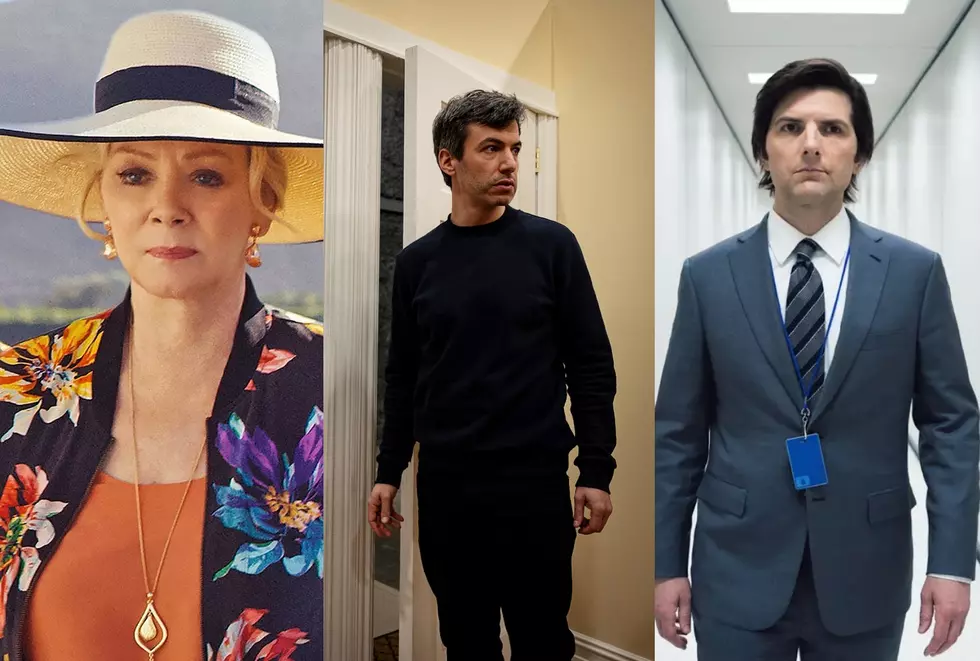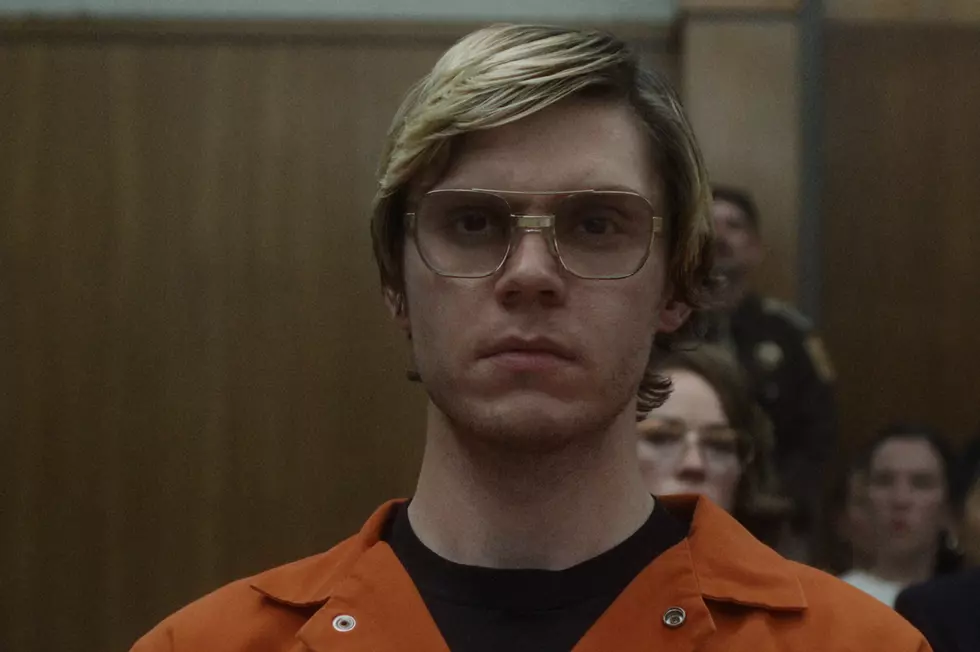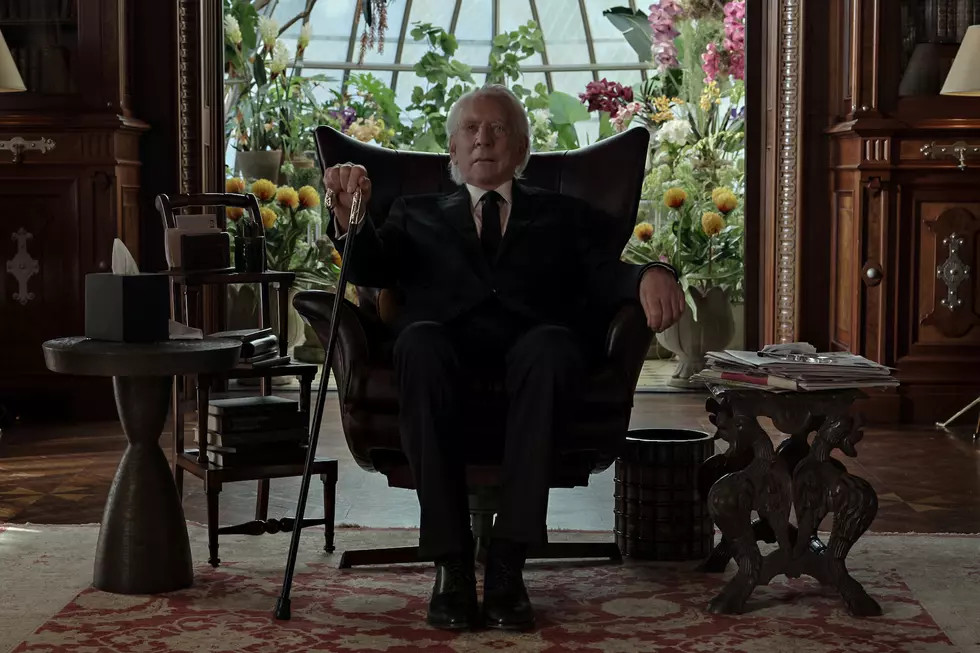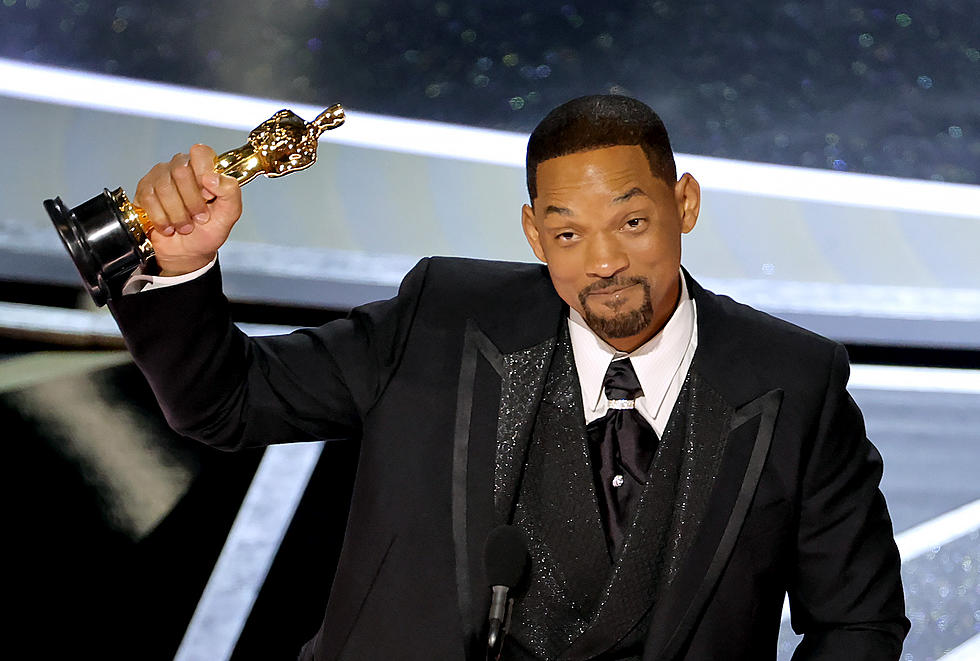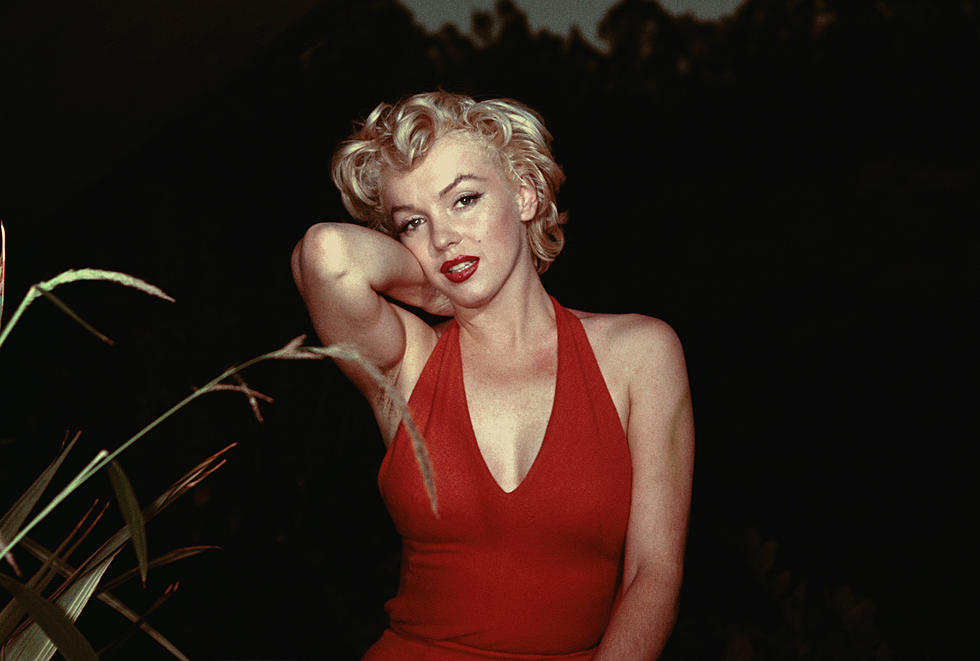
Netflix Wants You to Think ‘Godless’ Is a Series About Women. It’s Not.
Executive produced by Steven Soderbergh and created by Scott Frank, Godless has been marketed by Netflix as a western series about a small town inhabited almost entirely by women who have to defend themselves against a vengeful outlaw. But the promotional materials — including trailers, posters and official stills — are entirely misleading, and if you settled in to watch Godless over the holiday weekend expecting the female-driven version of Deadwood, you were more than likely disappointed.
I certainly was. Early reviews of the series were mostly positive, with Rolling Stone calling it a “brutal, timely western” and The Guardian describing it as “wonderfully wicked.” A new show produced by Soderbergh and created by Scott Frank (Logan) is plenty attractive before you even read the official plot from Netflix:
A ruthless outlaw terrorizes the West in search of a former member of his gang, who’s found a new life in a quiet town populated only by women.
A western town populated only by women? Great! A cast that includes Merritt Wever, Michelle Dockery, Jeff Daniels, Jack O’Connell and Scoot McNairy? Awesome. And then there’s the official poster, which looks like this:
As someone who has written extensively on the subject of managing personal expectations based on film marketing, it may seem hypocritical to criticize Netflix for their misleading advertising. But there’s a big difference between pre-judging a film’s quality based on its trailer, and understanding what a TV series is about based on posters, photos, plot descriptions and trailers. It’s the difference between subjective and objective expectations.
Though Soderbergh and Frank’s involvement certainly implied some measure of subjective quality, I had no expectations beyond the show Netflix was selling me in this trailer:
Much of the footage shown above is taken from later episodes — specifically the seventh and final episode, which features a climactic showdown between the women of La Belle and the ruthless outlaw Frank Griffin (Jeff Daniels, who is quite fantastic in this). In fact, all those promotional images of badass western women wielding guns to defend their homestead were taken from this episode.
The bulk of Godless is about Griffin’s relationship with Roy Goode (Jack O’Connell), who deserts his surrogate father and their gang of outlaws and briefly takes shelter in La Belle before moving to a ranch on the outskirts of town. There, he takes up with Alice Fletcher, an independent outsider who lives with her Native American son, Truckee, and his grandmother — a woman who is credited only as “Truckee’s Piute Grandmother.” Roy becomes a bit of a surrogate father to Truckee in a plot that’s clearly meant to be a cathartic response to his own upbringing with the narcissistic Frank.
But this well-worn narrative is not nearly as compelling as the women of La Belle, all of whom became widows when their husbands died in a tragic mining explosion. Merritt Wever is the boldest and best of the bunch as Mary Agnes, a woman who quickly dispensed with the maternal and feminine impositions of late 19th century society when her husband died. Mary Agnes is profane, gruff and fiercely independent; she’s also gay and romantically involved with Callie, a prostitute-turned-schoolteacher and the wealthiest woman in town.
Dockery also delivers fine work as Alice, though her story revolves almost entirely around Truckee and Roy, who offers to help out with her horses in exchange for reading lessons. All the time spent on Alice’s ranch is excruciatingly tedious, and feels like time spent waiting to return to La Belle. The town isn’t, as Netflix’s official synopsis might have you believe, populated only by women: There’s the local sheriff and Mary Agnes’ brother, Bill McNue (Scoot McNairy), and his deputy, Whitey Winn (Thomas Brodie-Sangster), who’s smitten with Louise Hobbs (Jessica Sula) — a black girl who lives with her family on the edge of town.
Frank Griffin is definitely an interesting antagonist, but he’s an overly-familiar type in this era of television, which has seen more than its fair share of deeply flawed, criminal men. At least his story is slightly more engaging than hanging with Roy and the horses on Alice’s ranch.
Still, nothing compares to the narrative potential of La Belle and its women, left to fend for themselves against predatory men of all stripes: A nefarious mining corporation that wants to take advantage of them, a disingenuous and opportunistic newspaper reporter, and the impending arrival of Frank and his band of violent outlaws. How much more fantastic could Godless have been if it were actually the show that Netflix advertised? And would it have been any better if Netflix had marketed it more honestly?
Doubtful. Godless is rife with problems: Monotonous and redundant plotting (including an entire episode about Roy and the horses, redeemed only by brief interludes with Mary Agnes and Callie), a bland and underwhelming male protagonist, an excess of lead characters (McNairy’s sheriff and Sam Waterston’s marshall are fairly useless), disjointed plot threads, ugly action sequences dominated by poorly executed speed-ramping, and a failure to explore the many interesting concepts and themes it introduces. Godless is so preoccupied with surrogate fatherhood and defining masculinity that it ignores far more than just the ladies of La Belle. The buffalo soldiers, the interracial and gay relationships, and Alice’s traumatic past are all worthy of more attention than they receive.
Perhaps selling Godless as a series about women was a more alluring marketing tactic than focusing on Frank and Roy. It certainly worked on me. When I asked around, most of the friends I spoke with either had no idea what the show was about or were also under the impression that it was a western about a town full of shotgun-toting women. That show might’ve been more relevant to our current cultural climate; it definitely would’ve been preferable to the show Netflix actually released.
Concentrating on the women of La Belle may have been a smart marketing decision, but there’s this unshakeable feeling that it was also a shady one. Wonder Woman, one of the biggest and most beloved films of 2017, also boasts a location inhabited only by women. But Themyscira is actually populated exclusively with women and lives up to its promise. Like Godless, a handsome and mysterious man on the run arrives in a land of women and takes up with a dark-haired local rebel. And, just like the Netflix show, those women must defend their homestead when they get caught in the crossfire between the handsome stranger and the violent men he’s running from. Godless even uses the tagline “Welcome to no man’s land,” evoking the stellar battlefield sequence from Wonder Woman.
Did Netflix capitalize on the success of Wonder Woman? It sure seems that way. Most of the marketing for Godless presents a show that could be described as “Deadwood meets Themyscira,” when in reality it’s just a western version of so many conventional narratives we’ve seen countless times in countless formats. Godless may be disappointing, but Netflix’s decision to ride Wonder Woman’s coattails and disingenuously seize on a cultural moment defined by brave women railing against violent men is kind of despicable.
More From News Radio 710 KEEL
